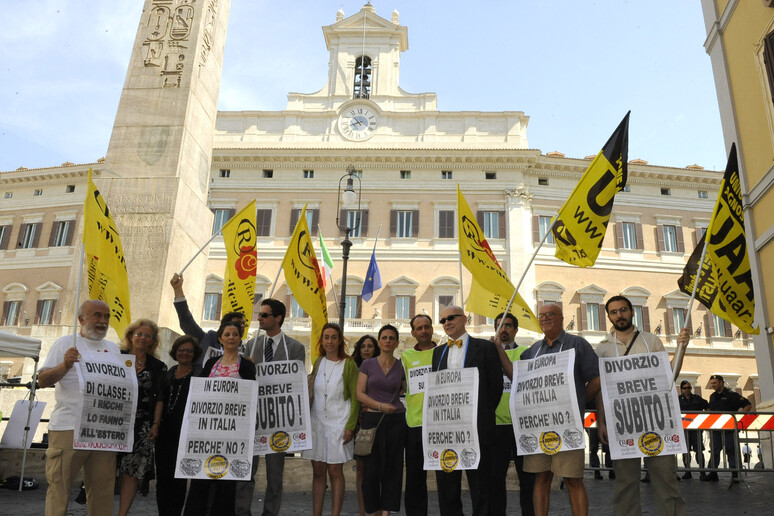Parliament approved Italy's quickie
divorce law on April 22.
Under the new law, divorce can take place six months after
a consensual separation or one year after a court-ordered
separation, whether or not there are any children.
Until the 2015 reform, couples couldn't divorce until they
had been separated for three years.
In 1800, the Napoleonic Code allowed for the dissolution of
civil marriages - albeit upon consent from parents or
grandparents.
However divorce remained taboo in unified Italy.
In 1902, a government decree allowing divorce only in cases
of adultery, injury, or a serious crime conviction was rejected.
It wasn't until the second half of the 1960s that the
battle for divorce kicked off with a bill by Socialist MP Loris
Fortuna, demonstrations staged by the libertarian Radical Party,
and the founding of the Italian League for the Institution of
Divorce.
In December 1970 the Fortuna-Baslini bill - a combination
with another bill drafted by Liberal MP Antonio Baslini - was
approved by Communist, Liberal, Radical, Republican and
Socialist MPs, over opposition from Christian Democrats and
members of the Italian Social Movement (MSI) post-fascist party.
Catholic forces didn't give up, and staged a May 12, 1974,
referendum asking Italian voters whether or not they wanted the
divorce law struck down.
The pro-divorce movement led by Radical Party luminaries
Marco Pannella and Emma Bonino succeeded in marshalling public
opinion in defense of the right to divorce.
The referendum resulted in a landslide victory for the
pro-divorce front, with 60% of the 87.7% turnout voting to keep
divorce legal.
Divorce after five years' separation remained on the books
until 1987, when the separation time was cut back to three
years.
Italy's 2015 divorce law is applicable to some 200,000
ongoing cases.
ALL RIGHTS RESERVED © Copyright ANSA











